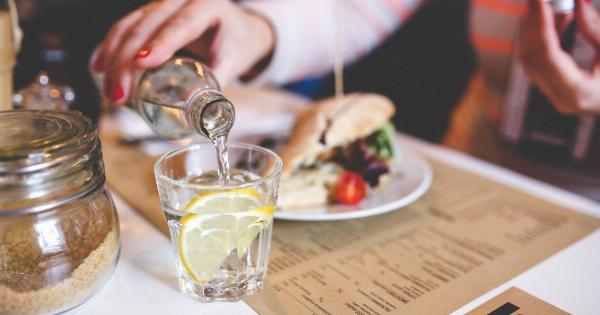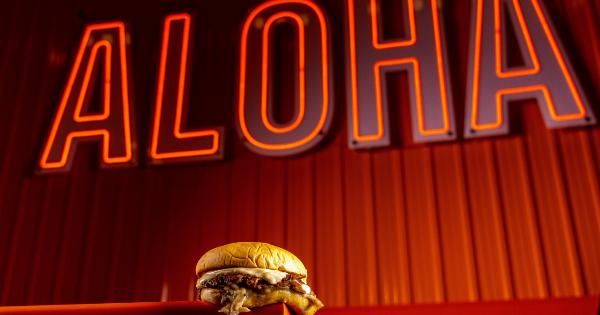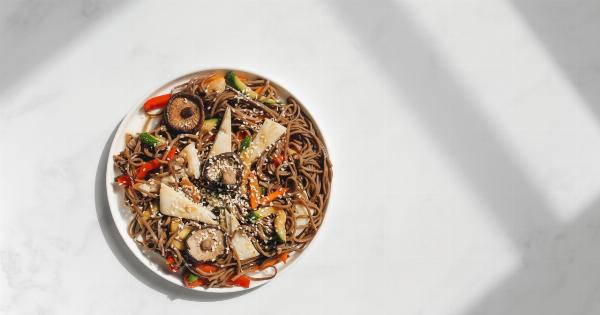Water is an essential component of life, and it plays a crucial role in maintaining overall health. Drinking water is known to have various benefits for the body, including aiding digestion.
However, there is a common belief that drinking water immediately after a meal can negatively impact digestion. In this article, we will explore this topic and uncover the truth behind this claim.
Water and Digestion
Before we delve into the effects of drinking water after eating, let’s first understand the role of water in digestion. Water is fundamental for the proper functioning of our digestive system.
It helps break down food particles, enabling the body to absorb nutrients efficiently. Additionally, water aids in the process of swallowing, allowing food to travel smoothly through the esophagus and into the stomach.
Moreover, staying hydrated by drinking an adequate amount of water throughout the day can prevent constipation and promote regular bowel movements.
Water helps soften stool and allows for easier passage through the intestines, preventing the discomfort associated with constipation.
The Theory Behind Delaying Water Consumption
The belief that drinking water after a meal can interfere with digestion stems from various cultural and traditional practices.
Some theories propose that consuming water immediately after eating dilutes the digestive juices, making them less effective in breaking down food and thereby hindering proper digestion.
One argument suggests that water can weaken stomach acid, affecting its ability to break down proteins, fats, and carbohydrates.
Another theory claims that drinking water while eating can dilute enzymes responsible for digestion, leading to slower and less efficient breakdown of food.
Evaluating the Evidence
While these theories seem plausible, there is limited scientific evidence to support the claim that drinking water immediately after a meal negatively impacts digestion.
In fact, studies have shown that drinking water during or after a meal has little to no effect on the digestive process.
A study published in the “Journal of Food and Nutrition Research” in 2017 examined the effects of different drinking patterns on digestion.
The results indicated that drinking water immediately after a meal did not significantly alter the digestive process compared to drinking water before or during a meal. The researchers concluded that consuming water at mealtime had no adverse effects on digestion in healthy individuals.
In another study published in the “European Journal of Clinical Nutrition,” researchers explored the impact of drinking water on gastric emptying, which is the process of moving food from the stomach to the small intestine.
They found no significant difference in the gastric emptying rate between individuals who drank water during a meal and those who did not.
These scientific studies suggest that consuming water after eating does not impair digestion. However, it is important to note that individual responses may vary.
Some people with certain digestive conditions or sensitivities might find that drinking water immediately after a meal exacerbates their symptoms. In such cases, it is advisable to consult a healthcare professional for personalized advice.
The Role of Drinking Water Before a Meal
While drinking water after a meal may not have a negative impact on digestion, some argue that drinking water before a meal can be beneficial. Let’s explore the potential advantages:.
1. Appetite Control
Drinking water before a meal can help control appetite and prevent overeating. Water has no calories and can create a sense of fullness, reducing the likelihood of consuming excessive amounts of food.
This can be particularly beneficial for individuals trying to manage their weight.
2. Hydration
Ensuring proper hydration is important for overall health. Drinking water before a meal can contribute to hydration levels, especially if individuals struggle to drink enough water throughout the day.
3. Aid in Digestion
Some individuals find that drinking water before a meal can help stimulate natural digestive processes, such as saliva production. Saliva contains enzymes that begin the digestion of carbohydrates, hence facilitating the overall digestive process.
Personal Factors and Considerations
While there is no concrete evidence to support the claim that drinking water immediately after eating negatively affects digestion, personal factors and considerations should be taken into account. These may include:.
1. Digestive Sensitivities
Individuals with specific digestive sensitivities, such as acid reflux or gastroesophageal reflux disease (GERD), may find that drinking water after a meal exacerbates their symptoms.
In such cases, it is advisable to follow personalized dietary recommendations provided by a healthcare professional.
2. Portion Sizes
Consuming large portions of food can put additional strain on the digestive system. In such instances, prioritizing water intake before or after a meal, rather than during, may aid in digestion.
3. Drinking Habits
Everyone has their own drinking habits and preferences. Some individuals may naturally prefer to drink water before or after a meal, while others may prefer to consume it during a meal.
It is important to listen to your body’s signals and choose what feels most comfortable for you.
Conclusion
Drinking water after eating does not appear to have a significant negative impact on digestion, as supported by scientific evidence.
While cultural and traditional beliefs may suggest otherwise, studies have shown that water consumption during or after a meal does not hinder the digestive process. However, personal factors and sensitivities may vary, and it is important to listen to your body and make choices that promote your overall well-being.





























